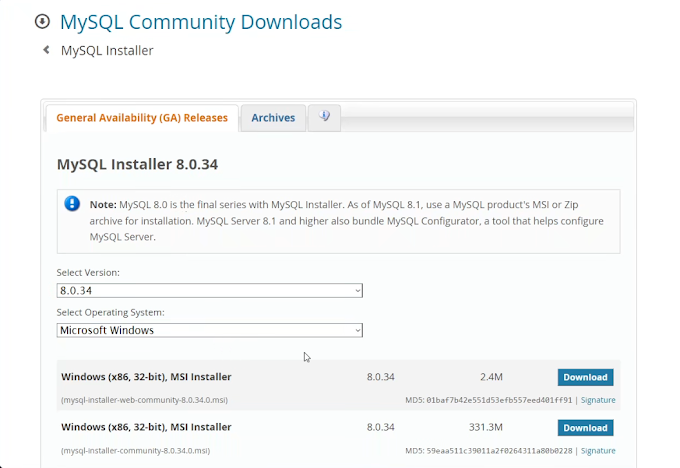What is Hacking? Types of Hacker
Hacking refers to the unauthorized or unauthorized access, manipulation, or exploitation of computer systems, networks, or digital devices. It involves activities aimed at gaining unauthorized access to data, bypassing security measures, and exploiting vulnerabilities for various purposes.
Note:
This site is for knowledge and educational purposes only, we do not promote or encourage any illegal activities.Your Responsible if you Get Used to That kind of Illegal Activities
For More Updates Join with Telegram Official Group
Hacking can be performed by individuals or groups with varying intentions, ranging from malicious activities to ethical hacking for security testing and research. Here are a few types of hacking:
1. Black Hat Hacking:
This refers to hacking done with malicious intent. Black hat hackers exploit vulnerabilities in systems to gain unauthorized access, steal sensitive information, disrupt services, or cause damage. They may engage in activities such as identity theft, data breaches, financial fraud, or spreading malware.
2. White Hat Hacking:
Also known as ethical hacking, white hat hackers perform hacking activities with the permission of the system owner. Their goal is to identify vulnerabilities and weaknesses in systems, networks, or applications to help improve security. They work to protect systems from potential black hat hackers by providing valuable insights and recommendations.
3. Gray Hat Hacking:
This type of hacking falls between black hat and white hat hacking. Gray hat hackers may access systems without explicit permission but have no malicious intent. They often expose vulnerabilities to the system owners and request a fee in return for disclosing the details of the vulnerabilities they discovered.
4. Hacktivism:
Hacktivists are hackers who carry out cyber-attacks or unauthorized activities to promote a specific social or political agenda. They may deface websites, leak sensitive information, or disrupt services to raise awareness or protest against certain issues.
5. Phishing:
Phishing is a technique used to deceive individuals into revealing sensitive information such as usernames, passwords, or financial details by disguising as a trustworthy entity. It often involves sending fraudulent emails or creating fake websites that mimic legitimate organizations or services.
It's important to note that hacking, unless authorized, is illegal and unethical. It can lead to serious consequences, including legal prosecution and damage to individuals, businesses, or organizations. Ethical hacking, however, is conducted within legal and ethical boundaries, with the goal of improving security and protecting systems from potential threats.
While hacking is generally associated with unauthorized activities and carries negative connotations, it's important to differentiate between illegal hacking and ethical hacking. Ethical hacking, also known as white hat hacking, involves hacking activities conducted with proper authorization and for legitimate purposes. Here are some benefits associated with ethical hacking and hackers:
1. Improved Security:
Ethical hackers help identify vulnerabilities and weaknesses in computer systems, networks, and applications. By simulating real-world attacks, they expose potential security flaws that can then be patched and strengthened, ultimately leading to enhanced overall security.
2. Vulnerability Assessment:
Ethical hackers perform comprehensive vulnerability assessments to identify potential weaknesses in systems. They can assess the effectiveness of security measures, including firewalls, intrusion detection systems, and access controls. This assessment helps organizations understand their security posture and take necessary steps to mitigate risks.
3. Early Threat Detection:
Ethical hackers can detect and report potential threats or security breaches before they can be exploited by malicious individuals. By proactively identifying vulnerabilities, organizations can take timely action to prevent data breaches, unauthorized access, or other cyber threats.
4. Protecting Sensitive Information:
Ethical hackers play a crucial role in protecting sensitive information, such as personal data, financial details, and intellectual property. By identifying weaknesses in security systems, they help organizations prevent unauthorized access and data breaches, safeguarding both individual and organizational assets.
5. Compliance and Risk Mitigation:
In many industries, compliance with specific regulations and standards is mandatory. Ethical hackers assist organizations in meeting these requirements by identifying vulnerabilities and recommending necessary security measures. They help mitigate risks associated with non-compliance and potential legal repercussions.
6. Security Awareness and Education:
Ethical hackers contribute to increasing security awareness among individuals, organizations, and the general public. Through their findings and recommendations, they help educate users about potential threats, safe online practices, and the importance of maintaining strong security measures.
It's crucial to remember that these benefits are associated with ethical hacking, which is conducted within legal and ethical boundaries. Unauthorized or malicious hacking carries severe legal consequences and can cause significant harm to individuals, organizations, and society as a whole.
Here are some benefits associated with ethical hacking:
Conclusion
Here are some frequently asked questions about Ethical Hacking:
1. What is ethical hacking?
Ethical hacking, also known as penetration testing or white-hat hacking, is the practice of testing computer systems, networks, and applications for vulnerabilities and weaknesses in a legal and authorized manner. The purpose is to identify and address security flaws to improve the overall security of the systems.
2. How is ethical hacking different from malicious hacking?
Ethical hacking is conducted with proper authorization and is intended to improve cybersecurity. It is performed by individuals who have legal permission to test systems for vulnerabilities. On the other hand, malicious hacking is unauthorized and aims to exploit security weaknesses for personal gain, causing harm or illegal activities.
3. Is ethical hacking legal?
Ethical hacking is legal when performed with proper authorization. Organizations often hire ethical hackers or engage third-party security firms to conduct penetration tests to assess the security of their systems. Unauthorized hacking, without explicit permission, is illegal and can lead to severe legal consequences.
4. What are the skills required to become an ethical hacker?
Ethical hacking requires a strong understanding of computer systems, networks, and programming languages. Key skills include knowledge of operating systems, networking protocols, web application development, and scripting languages. Additionally, problem-solving, critical thinking, and a continuous learning mindset are crucial for success in this field.
5. How can I learn ethical hacking?
There are various ways to learn ethical hacking. You can pursue formal education in cybersecurity or enroll in specialized courses and certifications such as Certified Ethical Hacker (CEH), Offensive Security Certified Professional (OSCP), or Certified Information Systems Security Professional (CISSP). Additionally, there are online resources, tutorials, and hands-on practice environments available for self-study.
6. What is the difference between a white-hat hacker and a black-hat hacker?
A white-hat hacker, also known as an ethical hacker, is someone who legally and ethically identifies vulnerabilities in computer systems to help improve security. They work with the system owners' permission and assist in fixing the identified issues. In contrast, a black-hat hacker is a malicious actor who hacks systems without authorization for personal gain, causing harm or engaging in illegal activities.
7. Can anyone become an ethical hacker?
Yes, anyone with a passion for cybersecurity and a willingness to learn can become an ethical hacker. While technical skills are essential, dedication, curiosity, and an ethical mindset are equally important. It's a field that requires continuous learning and staying updated with the latest technologies and security practices.
Remember, ethical hacking should always be conducted responsibly, within legal boundaries, and with proper authorization.
Ethical hacking promotes a safer and more secure digital environment by exposing vulnerabilities that could be exploited by malicious actors. It allows organizations to assess their security posture and address any weaknesses before they are compromised. By mimicking the tactics and techniques of real-world attackers, ethical hackers can identify potential entry.









![Step-by-Step Guide: Install NetHunter Rootless on Android [2023] - No Root Required](https://blogger.googleusercontent.com/img/b/R29vZ2xl/AVvXsEjr_ZkRL6AyVQsYrb3QCcsse840F2ukrgeihfWdzvaYG6DvKgRelbqvL5fC4DkxXErUxjB97vk67IzTDngE9evniR3VZt_8RXAEaCXgpHqZvuFc3eePbAh6kDSdWxjzItlt4lGdz3Dqk9W4frs-xzHocQkHjuMb45deGwPO9w2AdqNPRdkhOYG1a12_P3Q/w680/kali%20nethuter.png)
